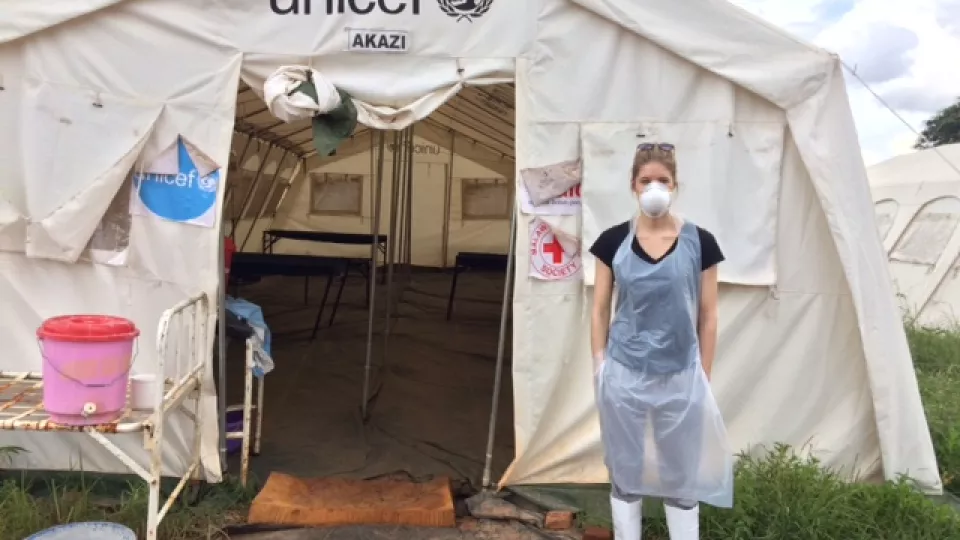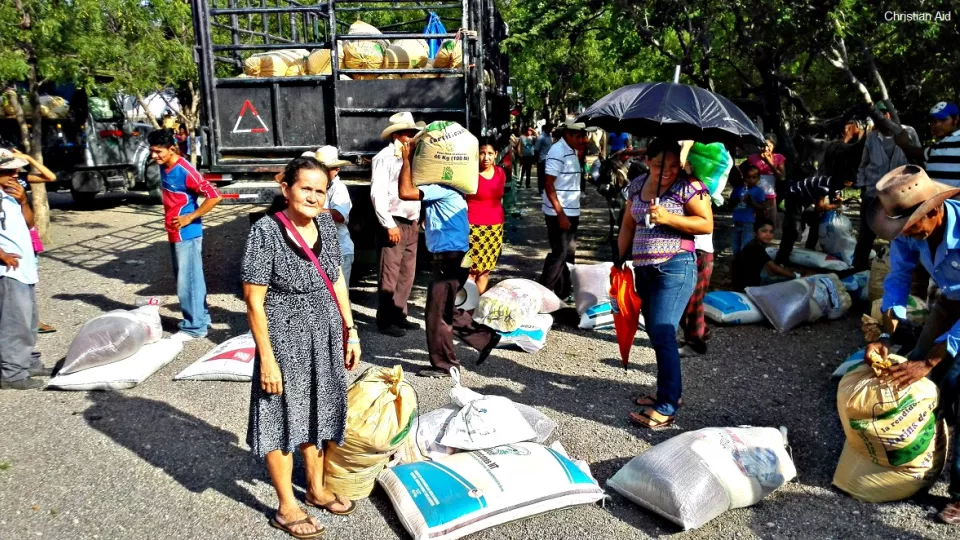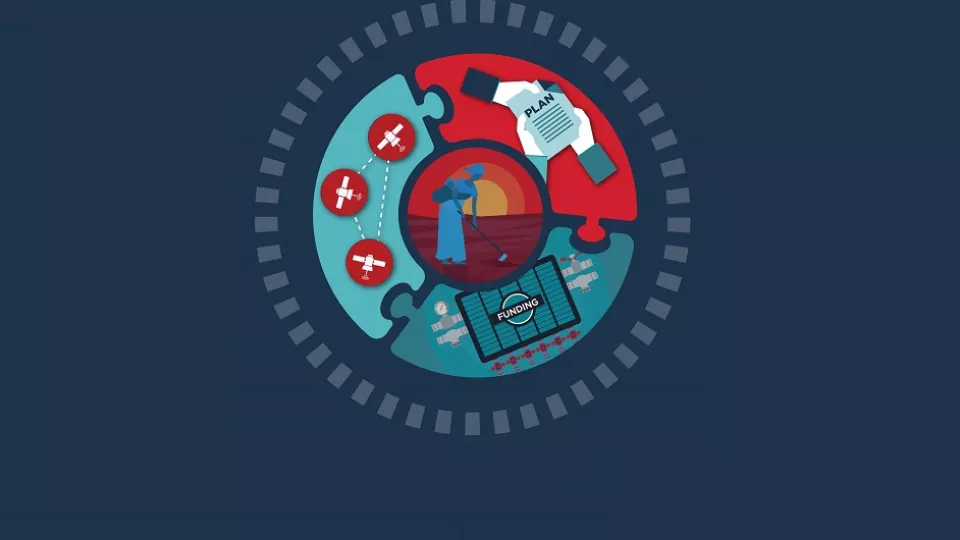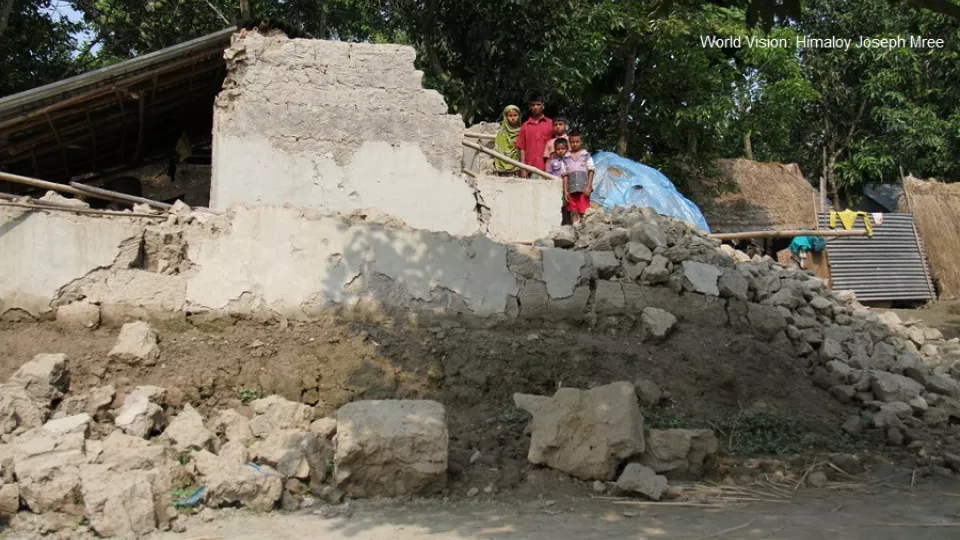Bangladesh Innovation Lab hosts capacity building workshop in Dhaka
The Disaster and Emergencies Preparedness Programme (DEPP) Bangladesh Innovation Lab organised Capacity Building training at the Dhaka Community hospital on the 3rd April.
The Disaster and Emergencies Preparedness Programme (DEPP) Bangladesh Innovation Lab organised Capacity Building training at the Dhaka Community hospital on the 3rd April.

‘He just collapsed and died on the road as he was coming here’- The District Health Officer who oversees the cholera treatment facility in Lilongwe, Malawi, talks about the latest cholera death- a Chief from a neighbouring village. ‘Cholera is a big taboo in the country’, she says, ‘Many community members opt not to use cholera treatment facilities in fear of the stigma and shame associated with the disease. They only begin their journey to the centre when they are on the verge of death…and then it’s too late’, she says solemnly.
The Protection in Practice project, part of the Disasters Emergencies Preparedness Programme, aims to build the capacity of national staff to deliver activities which ensure the protection of civilians during times of crisis, while transforming the sector’s approach to protection. The humanitarian community, along with the United Nations as a whole, has taken critical steps in the last decade to emphasise the fundamental importance of protection in responses to humanitarian crises. Today, in view of the number of complex and concurrent emergencies, it has never been so critical for all humanitarians to ensure that their activities have a positive impact on the protection of displaced and affected populations.
The Protection in Practice project, part of the Disasters Emergencies Preparedness Programme, aims to build the capacity of national staff to deliver activities which ensure the protection of civilians during times of crisis, while transforming the sector’s approach to protection. The humanitarian community, along with the United Nations as a whole, has taken critical steps in the last decade to emphasise the fundamental importance of protection in responses to humanitarian crises. Today, in view of the number of complex and concurrent emergencies, it has never been so critical for all humanitarians to ensure that their activities have a positive impact on the protection of displaced and affected populations.

‘Rapid onset’ crises relate to the majority of Start Fund alerts and interventions. But this is not the whole story. In its pursuit of helping the world’s most crisis affected populations, the Start Fund has also changed lives for the better in chronic, ‘slow onset’ crises, such as drought, food insecurity, and extreme winters.

Humanitarian funding needs to improve: we must move away from reactive funding models to proactive ones if we want to prevent human suffering.

At the Start Network, we’re proud that the Start Fund is the first of its kind to allow humanitarian Non-Governmental Organisations (NGOs) to ‘anticipate’ crises. We are starting to see the concept becoming normalised. Next month, the Red Cross will officially open a ‘forecast-based financing’ window for the Disaster Relief Emergency Fund.
Donors and humanitarian agencies are thinking carefully about how to use forecasts to provide earlier support to at-risk communities before a disaster occurs. While this interest stems from a desire to reduce the growing humanitarian burden and reconsider how aid is spent on humanitarian crises, forecast-based early action is also of interest to development professionals operating in social protection, disaster risk management and risk financing: preventive action should happen anyway, but in a context of limited resources forecast-based early action can help with decisions about how to best allocate funds in advance of an imminent impact. You can read about the Start Funds Crisis Anticipation Window by clicking here.

When humanitarian disasters happen, aid needs to be rapidly brought to the centre of the crisis zone and concentrated there until the situation has stabilised. Surge capacity measures how quickly and effectively this surge of temporary aid can be brought to a disaster zone, and how smoothly it can be scaled down again afterwards.

The Start Network is seeking the views of aid agencies on a new form of membership being launched in order to shift greater power and resources to those closest to humanitarian crises.